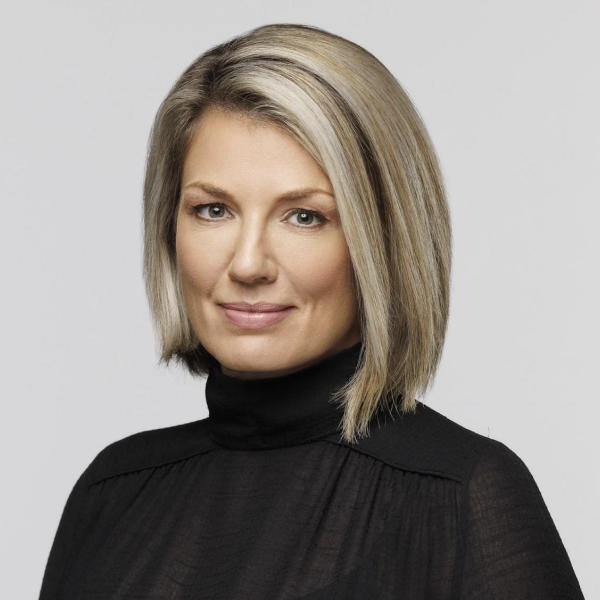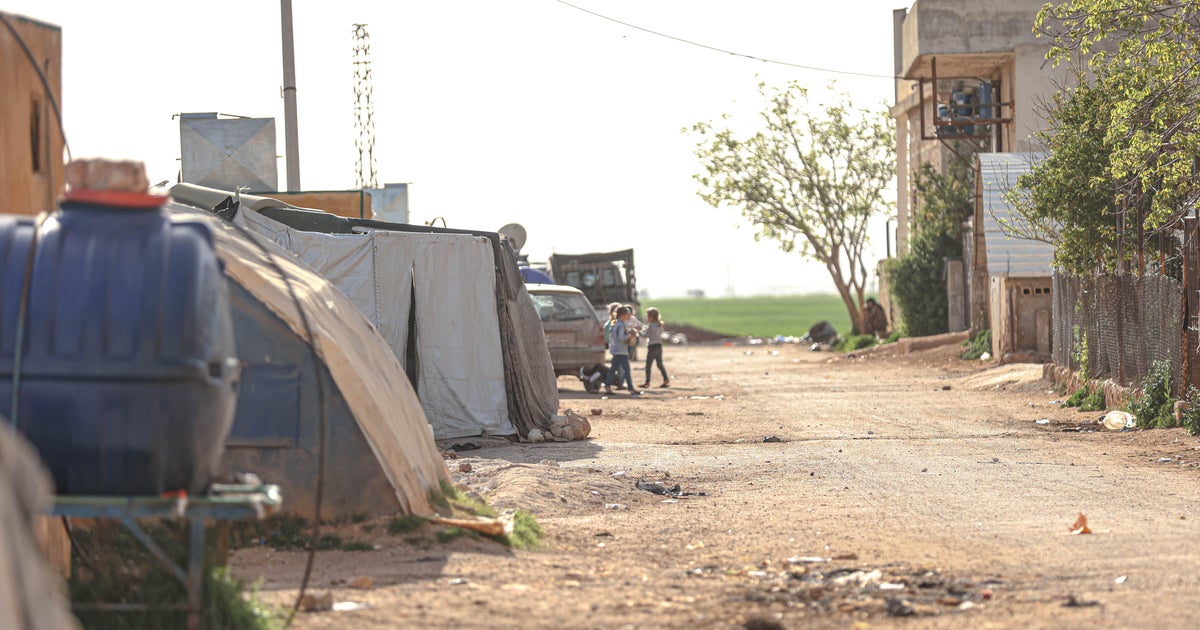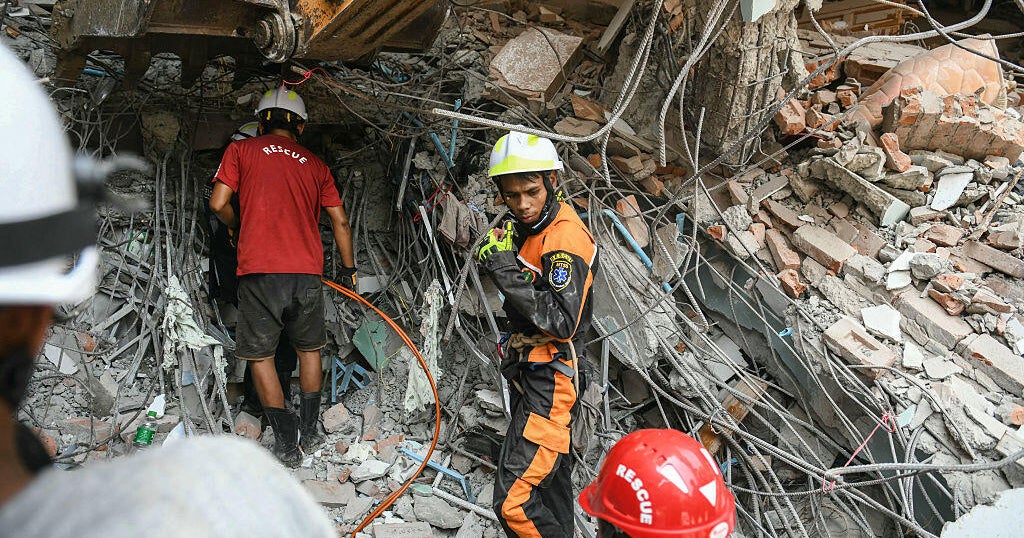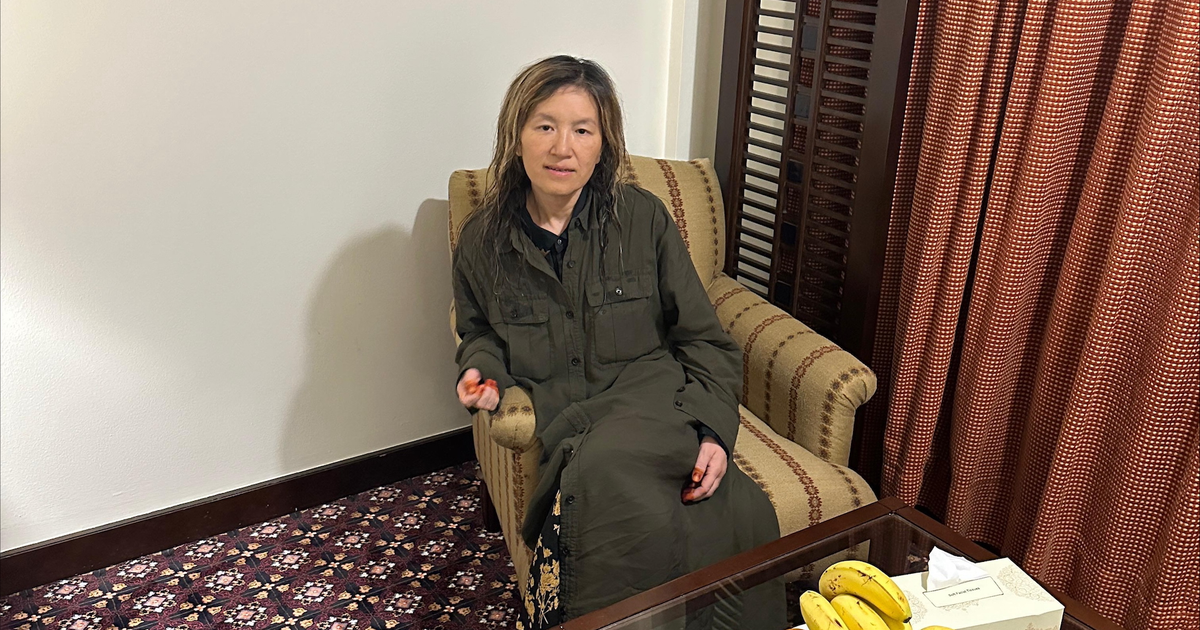Blinken calls FIFA's "One Love" armband ban "concerning" as LGBTQ soccer fans lament "tarnished" World Cup
U.S. Secretary of State Antony Blinken criticized a decision by international soccer's governing body FIFA to threaten players at the World Cup with yellow cards for misconduct if they wear rainbow "One Love" armbands supporting inclusion and diversity. Speaking next to his Qatari counterpart on Tuesday, Blinken said "any restrictions on freedom of expression" were "always concerning" to the United States.
"It's especially so when the expression is for diversity and for inclusion," he said, "and in my judgment, at least no one on a football pitch should be forced to choose between supporting these values and playing for their team."
FIFA announced the ban on the armbands just hours before the first game got underway on Monday, with players on seven European teams set to don the nod to equal rights. In the end, not a single player risked a yellow card to wear the band. Yellow cards are normally handed out by game officials for bad sportsmanship during play, and if a player gets two of them, they're ejected from the match.
Asked about Blinken's remarks, FIFA referred The Associated Press to an earlier statement announcing an agreement between the organization and national soccer federations to allow players to wear a "No Discrimination" armband instead during the tournament.
Both FIFA and Qatar have been dogged by controversy since the Gulf nation won its bid to host the soccer tournament more than a decade ago. And the criticism has only mounted amid last-minute changes to the rules for both players and fans pushed by Qatar's conservative Islamic government.
Sex outside of marriage is illegal in Qatar and homosexuality can be punishable by death. Blinken referred on Tuesday to those restricted rights, and the treatment of migrant workers who built the World Cup infrastructure, as issues on which "real work remains" to be done.
"The United States will continue to work with Qatar on strengthening labor rights and human rights more broadly long after the World Cup is over," he said.
That work can't come soon enough for LGBTQ soccer fans around the world who have been torn between their passion for the sport, and their misgivings about the host country.
Eric, who plays for an LGBTQ soccer team in London called Stonewall FC, said he was looking forward to watching the matches in Qatar, but to him, the world's biggest sports tournament was forever tarnished.
"Tarnished," he told CBS News, "by the legacy of a country that has so much work to do."
"There would be no circumstance that I'd be comfortable in Qatar, attending the World Cup, going to matches," agreed his teammate Ziad.
The ruler of Qatar, Sheikh Tamim bin Hamad Al Thani, has insisted that everyone is welcome at the World Cup, including gay soccer fans.
"The World Cup is a great opportunity for people from different parts of the world to come and experience our culture," he said. "We welcome everybody, but we expect — we also want people to respect our culture."
To many people, however, including LGBTQ Qataris, that culture and the laws it has produced represent a threat.
Dr. Nas Mohamed, who lives and practices medicine in San Francisco, claims to be the first Qatari to come out publicly as gay. But when he did so, earlier this year, he told CBS News it brought death threats.
"Very honestly, I have never been so afraid," he said. He believes that if he went back to his home country, he'd be arrested.
"Qatar does not have the resources right now during the World Cup to go out of their way, hunting LGBT people," he said, suggesting the county was merely putting on a veil of tolerance while the world's attention was aimed its way.
When one of Qatar's World Cup ambassadors, a former member of its national soccer team, was interviewed by German television, the veil slipped. He suggested homosexuality was a sickness, caused by "damage in the mind."
Members of Australia's World Cup team recently made a video demanding "the decriminalization of all same-sex relationships" in Qatar (below).
But one of soccer's biggest stars, David Beckham, has drawn condemnation for signing a lucrative deal to promote Qatar and its World Cup.
The players at Stonewall FC said they were disappointed by his decision.
"I think he's made an absolutely monumental error of judgment in signing up to be an ambassador for the World Cup," Eric told CBS News.
Fellow player George said the soccer icon was "being sold" for "just another zero in his bank account, which would make no difference to him. I think it's a complete sellout."
Beckham did not respond to CBS News' request to provide his side of the story. He recently claimed, however, that the World Cup would be a platform for progress, inclusivity and tolerance.








